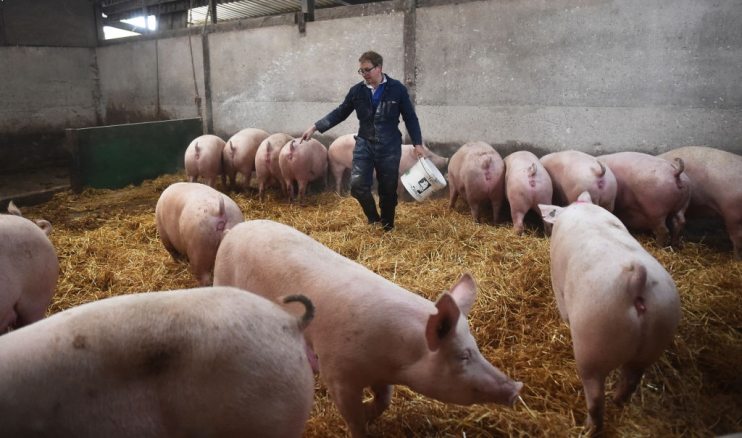MPs warn of further food price hikes unless labour shortages are ‘resolved swiftly’

More grocery price increases are on the horizon unless the government intervenes to solve worker shortages, MPs have warned.
Brits have faced bare supermarket shelves in the past eighteen months as various businesses were hammered by worker shortages.
Now, the government must urgently take action and change immigration policy in order to alleviate pressure on supply chains, the environment, food and rural affairs (EFRA) committee of cross-party MPs has said.
Without additional action, labour shortages “threaten to shrink the sector permanently,” MPs concluded, in a report titled Labour shortages in the food and farming sector.
There could be “a chain reaction of wage rises and price increases reducing competitiveness, leading to food production being exported abroad and increased imports,” the report added.
Research cited by the MPs said the food and drink sector may have had more than 500,000 job vacancies last year, equivalent to a 12.5 per cent structural vacancy rate.
Chair of the EFRA Committee, Neil Parish MP, described the government’s approach to food and farming workers as “particularly disappointing” when the sector faced difficulties last year.
“In 2021 farmers faced an extraordinary situation – crops were left to rot in the fields and healthy pigs were culled due to a lack of workers. This has serious implications for the well-being of the people who put food on our tables today and in the future,” Parish explained.
The National Farmers Union warned last year that up to 150,000 animals could have to be culled by pig farmers, due to the absence of abattoir workers.
The government did issue some temporary visas so workers could come to the UK from overseas and plug labour gaps in sectors in desperate need – however business groups said this did not go far enough. Ministers issued temporary short-term visas for poultry workers, HGV drivers and pig butchers.
Some 30,000 seasonal worker permits are available per year, for workers wanting to come to the UK to pick crops, despite industry-wide calls for this to be hiked.
Parish added: “While some of the reforms put forward by Government have helped in the short term, and we agreed that we must look to expand the domestic workforce – this won’t happen overnight. In the meantime, it must use the powers available – including over immigration policy – to support the sector. Otherwise we will export our food production and import more of our food.”
The report said it was clear that the two main causes for labour shortages were the Covid pandemic and Brexit.
Bosses have been forced to increase wages in order to entice potential workers. One strawberry farm, Sharrington Strawberries, told MPs it had upped wages 50 per cent for seasonal pickers. However, the firm was still only able to recruit about two thirds of the 60 workers they needed to.
The National Farmers’ Union (NFU) reiterated calls for the government to release an additional 10,000 visas it already can under the seasonal workers scheme and review immigration policy to “enable British food and farming to thrive.”
NFU President Minette Batters added:“Farm businesses are working hard to recruit staff domestically, but even sharply rising wages have had little impact because the labour pool is so limited. Instead, this only adds to production costs at a time when we are also facing rapidly rising costs on farm and continued global uncertainty due to the conflict in Ukraine and the real possibility of a crisis of confidence among the nation’s farmers and growers.”
UKHospitality boss Kate Nicholls said “chronic” labour shortages were damaging “the attempts of businesses in the sector to rebuild cash reserves and shattered balance sheets,” as they sought to recover from the pandemic.
She added: “A failure to tackle the issue now will stifle the sector’s ability to drive the wider economic recovery and we share the committee’s warning that fundamental change is needed to if wage rises are not to trigger significant price increases in the sector, further damaging hopes of recovery.
“We want to work hand-in-hand with the Government to examine, review and reset all the policies that we had pre-Covid in order to ensure that the immigration, training and skills policies we have now are fit for purpose in a post-pandemic market.”